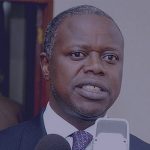Global challenges require global solutions. And in an increasingly globalised and interdependent world, global governance mechanisms continue to gain importance. But as the world gets more connected and the problems become increasingly complex, people feel more and more alienated by what they often perceive to be disconnected corridors of power at the global level. While it is easier to follow political decision-making and hold powers accountable at local and national level, the global structures and processes are often less understood. Who is driving political agendas, policies and decision-making at the global level? What is the actual influence of global players without a clear democratic mandate? What is the role of multinational corporations, especially when some of them have a stronger economic muscle than entire national economies of smaller countries? What is happening behind the scenes of global fora? Who beyond governments are the powerful global players of the 21st century? Apart from the corporate world, what is the role of (global) social movements and international NGOs? Does the increased digital connectedness of “global citizens” and the rise of social media open up new avenues for citizens to influence global agendas?
Kampala Geopolitics Conference




